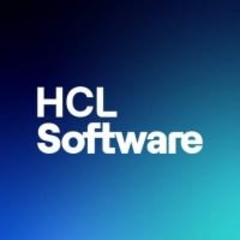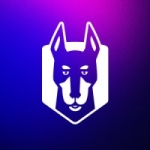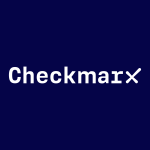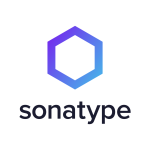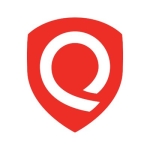What is our primary use case?
HCL AppScan is primarily used to improve application security. We are transitioning from DevOps to DevSecOps.
We are attempting to integrate these tools into our CICD pipeline in order to meet our business use cases. And if we notice that the tool is missing any business features or a feature, we will highlight them and work to have them fixed or implemented. That is how we go about it. We don't go for any generic features because that will be handled by the product team. We are here to identify our gaps and then have them implemented by the vendor team.
AppScan is only used for web scanning; we do not use it for anything else.
What is most valuable?
There are many features that are valuable. such as the APIs. API calls in AppScan, and similar to Burp Suite enterprise edition, which is also for API scans. I can trigger the scan ware API.
The HCL AppScan turnaround time for Burp Suite or any new feature request is pretty good, and that is why we are sticking with the HCL.
What needs improvement?
The dashboard, for AppScan or the Fortified fast tool, which we use needs to be improved. We always raise that as an announcement request because statistics gathering or management reports based on statistics are quite important. that is the only generic feature that we always request from the product team. The standard response is "Yes, it is in the pipeline, we will take a look."
We would like to see all of the results in the same product. However, specific products for a specific test are available on the market. For example, you cannot upload the task report to the DAST report dashboard and instead request that the product team or vendor team create a sophisticated dashboard for that. Definitely, they will say "No, it is not possible because you have a DAST tool on the market. Go and purchase that. It will have your dashboard. If you're a DevSecOps team, and you ask me I would like to see all of the reports uploaded and collaborated on the same dashboard of the particular product. This is the reason we are using an open-sourced vulnerable management tool.
For how long have I used the solution?
We have been using HCL AppScan for almost four years.
We are not working with the most recent update, but with two versions earlier.
Buyer's Guide
HCL AppScan
April 2025
Learn what your peers think about HCL AppScan. Get advice and tips from experienced pros sharing their opinions. Updated: April 2025.
848,716 professionals have used our research since 2012.
What do I think about the stability of the solution?
The HCL AppScan performance is both stable and reliable.
Burp Suite and HCL AppScan are both stable and reliable when compared to other products.
What do I think about the scalability of the solution?
Scalability is a question that is determined by how you allocate your hardware. It is all about how you design your CICD program with HCL AppScan.
Scalability is quite simple to implement or achieve. Again, this is entirely dependent on your business requirements. Generally, or in short, scalability is not an issue with HCL AppScan.
This solution is used daily.
How are customer service and support?
We have contacted technical support when we need customization, and there are usually other bugs and day-to-day life hacks.
The support has improved since the transition from IBM to HCL AppScan.
Which solution did I use previously and why did I switch?
We are working with tools that are all related to application security, such as Qualys, SAST, DAST, open-sourced software scan, and penetration test tools.
Some of the penetration test tools we work with are Burp Suite, and OWASP Zap which is an open-source product.
How was the initial setup?
The initial setup with most of the products, particularly the Burp Suite and the HCL AppScan, is straightforward. The only difference is that when it is customized to your specific requirements, that is when the key part comes into play. We have to engage the professional services of the product team, or the vendor team, which is where the headache begins. That is a common challenge shared by the all vendor team.
Deployment and installation of AppScan take approximately three hours, or less than that if you have all of the necessary prerequisites, hardware, a database, and everything is in place, then three hours is all you need.
We put our application into maintenance mode during the version upgrade.
We require one person for the administration of this product.
What about the implementation team?
When customization is required, we have assistance from the vendor time.
Most of the HCL AppScan installations are customized. We use Pure Vanilla or a new malware product.
What's my experience with pricing, setup cost, and licensing?
With the features, that they offer, and the support, they offer, AppScan pricing is on a higher level.
They should reduce it slightly. But, in my opinion, it's not a big deal. If a tool is able to satisfy all your requirements, it doesn't matter, the cost is not a deciding factor.
There are no additional fees in addition to the licensing fee.
Which other solutions did I evaluate?
We looked into it and decided on two open-source vulnerable management products. We are currently conducting a proof-of-concept on those open source vulnerable management tools.
We are just looking into these open sources and experimenting with them. As a result, this is the first time we intend to incorporate this vulnerable management tool into our world.
We are looking for vulnerability management, purely for vulnerability management, that can collect reports from SAST, DAST, and other scan results and use them in the management dashboard.
What other advice do I have?
Before you choose a tool, whether it is Burp Suite, AppScan, or any other tool, you must first construct your business requirements, or the business use case. And you must detail out all of the product's features, as well as map the features to the business use cases. If the product meets or exceeds the majority of the business use cases, then you only need to choose that product. Otherwise, you will end up customizing the product after you buy it, which will create issues in terms of engaging with the professional services of that specific vendor. Then there's the matter of time and money.
Detail all of your business use cases, then map those use cases to the product feature list and choose the product.
We have a business relationship with AppScan, as customers, and some of our business partners have project outsourcing with IT companies, such as HCL, IBM, Dell, and Infosys.
I would rate HCL AppScan a nine out of ten.
Which deployment model are you using for this solution?
On-premises
Disclosure: I am a real user, and this review is based on my own experience and opinions.

